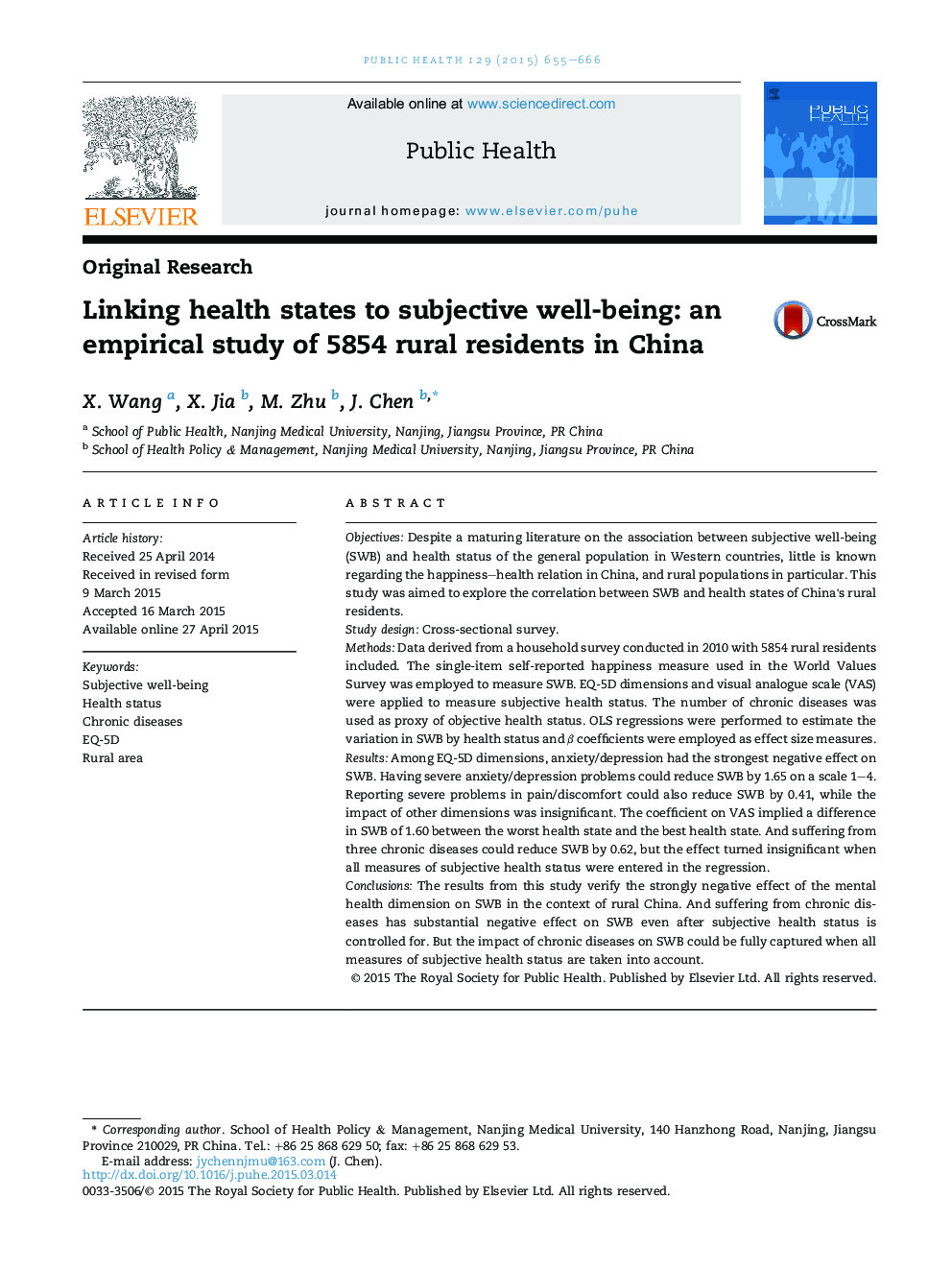| کد مقاله | کد نشریه | سال انتشار | مقاله انگلیسی | نسخه تمام متن |
|---|---|---|---|---|
| 1087338 | 951508 | 2015 | 12 صفحه PDF | دانلود رایگان |
• First health-happiness correlation analysis of Chinese rural residents.
• First application of EQ-5D to measuring subjective health of Chinese rural residents.
• Mental health dimension has the strongest negative effect on SWB.
• Chronic diseases reduce SWB significantly after subjective health is controlled for.
ObjectivesDespite a maturing literature on the association between subjective well-being (SWB) and health status of the general population in Western countries, little is known regarding the happiness–health relation in China, and rural populations in particular. This study was aimed to explore the correlation between SWB and health states of China's rural residents.Study designCross-sectional survey.MethodsData derived from a household survey conducted in 2010 with 5854 rural residents included. The single-item self-reported happiness measure used in the World Values Survey was employed to measure SWB. EQ-5D dimensions and visual analogue scale (VAS) were applied to measure subjective health status. The number of chronic diseases was used as proxy of objective health status. OLS regressions were performed to estimate the variation in SWB by health status and β coefficients were employed as effect size measures.ResultsAmong EQ-5D dimensions, anxiety/depression had the strongest negative effect on SWB. Having severe anxiety/depression problems could reduce SWB by 1.65 on a scale 1–4. Reporting severe problems in pain/discomfort could also reduce SWB by 0.41, while the impact of other dimensions was insignificant. The coefficient on VAS implied a difference in SWB of 1.60 between the worst health state and the best health state. And suffering from three chronic diseases could reduce SWB by 0.62, but the effect turned insignificant when all measures of subjective health status were entered in the regression.ConclusionsThe results from this study verify the strongly negative effect of the mental health dimension on SWB in the context of rural China. And suffering from chronic diseases has substantial negative effect on SWB even after subjective health status is controlled for. But the impact of chronic diseases on SWB could be fully captured when all measures of subjective health status are taken into account.
Journal: Public Health - Volume 129, Issue 6, June 2015, Pages 655–666
